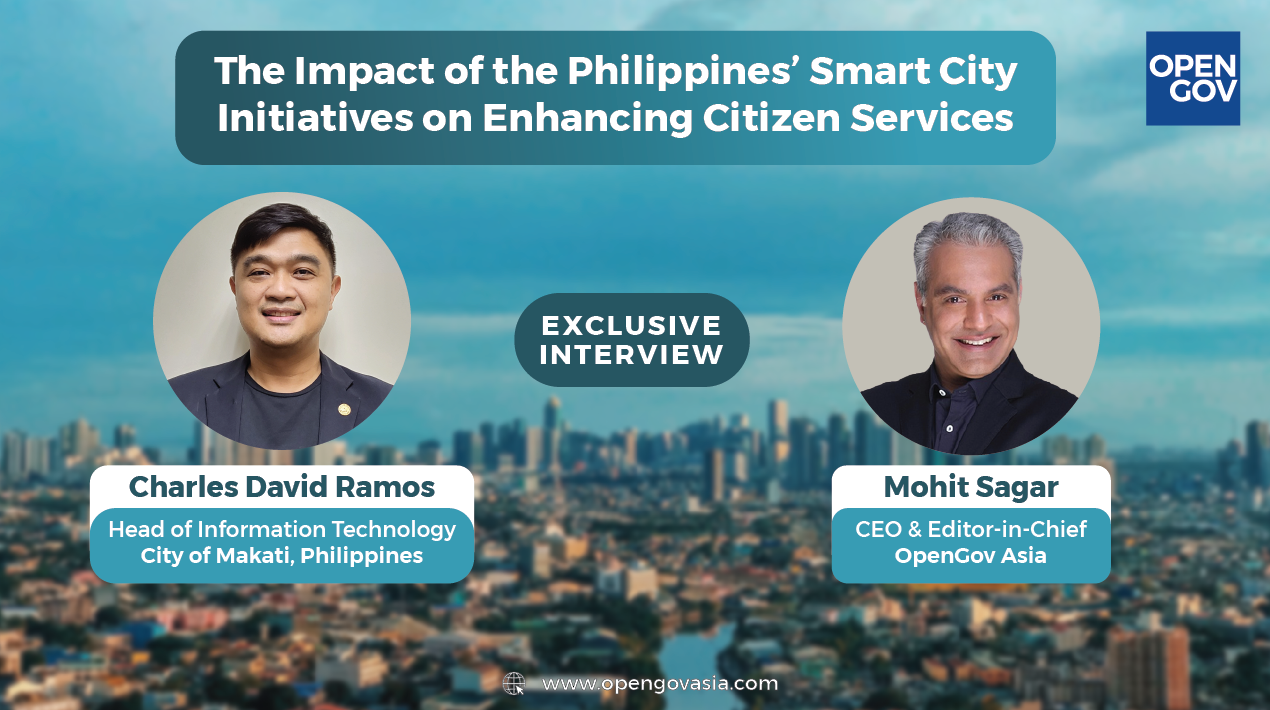
Information and communication technology (ICT) is used in a smart city to improve government efficiency, public engagement and the standard of living for its residents.
Advanced technologies and data analytics are at the heart of the concept of a “smart city,” whose primary goals are the enhancement of city services, the promotion of economic growth, and the betterment of residents’ quality of life.
The recent pandemic and other critical events have forced the citizens of the Philippines, as it has in other countries, to rely on their government for a wide range of services to be offered innovatively.
Agencies moved rapidly to digitalise services and set standards for data storage, security and workflow. Central and local governments have implemented a wide range of ICT strategies to lessen the impact of these catastrophes.
For instance, Makati City, the business capital of the Philippines, launched the Makatizen Card and the Makatizen App to offer financial help and services, such as online legal assistance, teleconsultations, and online learning, to its residents.
Challenges Turn Inspiration: Embarking on Smart City Projects
 Charles David Ramos, the Head of Information Technology for Makati City in the Philippines, is firmly convinced that innovation helps governments and public sector organisations deliver services faster, better and cheaper. Moreover, it can also help with long-term problems caused by social, economic, demographic, environmental and technological change.
Charles David Ramos, the Head of Information Technology for Makati City in the Philippines, is firmly convinced that innovation helps governments and public sector organisations deliver services faster, better and cheaper. Moreover, it can also help with long-term problems caused by social, economic, demographic, environmental and technological change.
“We will be able to increase our revenue and service efficiency through innovation,” Charles asserts, citing the recently launched “MakaTurismo” website to underscore his point, which was made to help the local tourism sector.
The website is Metro Manila’s first travel website focused on attracting tourists into a post-pandemic environment. Apart from the lifestyle centres, eateries, and hotels, the City of Makati is home to numerous undiscovered treasures, such as special historical sites.
Since it includes details about the city’s tourist attractions, lodging options and free walking tours, the project could significantly assist businesses in attracting clients and customers.
While discussions of digital transformation typically centre on improvements to remote working capabilities, Makati City has instead begun investing in infrastructure upgrades. As a result, they are modernising their server infrastructure by switching from a physical to a software-defined network (SDN) and merging various data centres.
Charles noted that Makati City is concerned with project implementation and database consolidation. In addition, they integrate analytics into all projects and increase automation to improve their functional services.
Makati City opened the Makatizen Hub in 2021, to further assist its citizens in their transactions during the ongoing pandemic. The local government has set up satellite offices so that everything can be done online.
Charles emphasises that, as they integrate technology in a variety of ways, they are centralising a strategic approach to planning and managing the direction of the city government’s use of technology.
To accommodate its diverse population, Makati provides a wide range of publicly available services. In addition, there are services designed exclusively for residents, catering to their unique requirements based on factors such as age, health, education and overall satisfaction with life.
The city has been able to successfully manage these programmes, but officials are always looking for ways to improve efficiency. This is made possible in large part by technological advancements. As the population of Makati expands, so do the city’s needs and the hopes and dreams of its residents.
The responsibility of the administration lies in anticipating the wants and needs of the people. By bolstering them with cutting-edge tech, agencies can reimagine service delivery and foresee what people will need in the future.
As an example of a programme designed for the future but implemented today, the Makatizen Card is a useful tool. The Makatizen Card is an innovative programme that provides residents of Makati with access to a variety of new social, informational, identifying and financial services.
For more than half a million people living in Makati, this single government-issued ID card unifies access to a wide range of economic and social services.
Charles is one of the authors of IT Security – the Security 3.0 book, published by Mithra Publishing in London. It discusses the infrastructure framework’s fundamentals that underpin the city’s primary data centre and the local government information system that has recently undergone upgrades.
“The data centre’s IT capabilities can only be improved through upgrades. By upgrading ageing or inefficient IT assets, they improve reliability, performance, efficiency, cost, security, and uptime -which resulted in serving the public efficiently,” Charles explains, further elaborating on the steps taken by the municipal government to improve flood and earthquake early warning systems.
Makati was named the first-ever Resilience Hub in the Philippines and the Southeast Asian Region by the United Nations Office for Disaster Risk Reduction (UNDRR) in the third quarter of this year.
According to the UNDRR, a resilience hub is a city, municipality, or local authority with the political will and expertise to take action to reduce vulnerability to disasters and climate change. With the help of the Making Cities Resilient Campaign (MCR), which Makati joined in 2010, the city has successfully integrated disaster risk reduction into all its strategic plans and programmes. The region’s cities have joined several international networks to learn from and implement its DRR best practices.
Additionally, in collaboration with the Department of Trade and Industry – Board of Investments (DTI-BOI), Digital Pilipinas officially launched its Innovative Cities initiative to technologically advance one city at a time. It does this by bringing together local government agencies, academic institutions and the private sector to establish numerous centres of excellence.
In association with the Resiliency Innovation Sustainability & Entrepreneurship (RISE) Certification Programme, the City of Makati was selected as the programme’s pilot location. With a focus on making the Philippines relevant in digitalisation and Web 3.0 conversation, the Innovative Cities initiative seeks to increase the Philippines’ innovation and technology quotient to support local economies and expand their industries.
The city’s digital transformation journey in local government has been completed at minimal or no cost. Public-private partnerships (PPPs) have been used to implement larger-scale projects and some solutions have been provided for free in exchange for Makati serving as a model for the adoption of these technologies by other LGUs and institutions. Even when the COVID-19 pandemic broke out in 2020, Makati was still able to serve its citizens efficiently without endangering their health.
A true and effective digitalisation strategy entails a fundamental rethinking of the traditional organisational structures of industrial activities and business models to make them significantly better.
With the help of Makati Mayor Abby Binay, who is very encouraging of digital transformation, these initiatives were able to come to fruition. Charles believes that the use of technology and innovations is merely a tool to accomplish this goal, so it’s critical to pick the approaches that can most effectively help an application achieve its objectives.
“Digital transformation is, at its core, a mindset. It is a long-term, ongoing journey rather than a single undertaking or endpoint. As the business changes and appropriate technologies become available, iteration is necessary.”
















